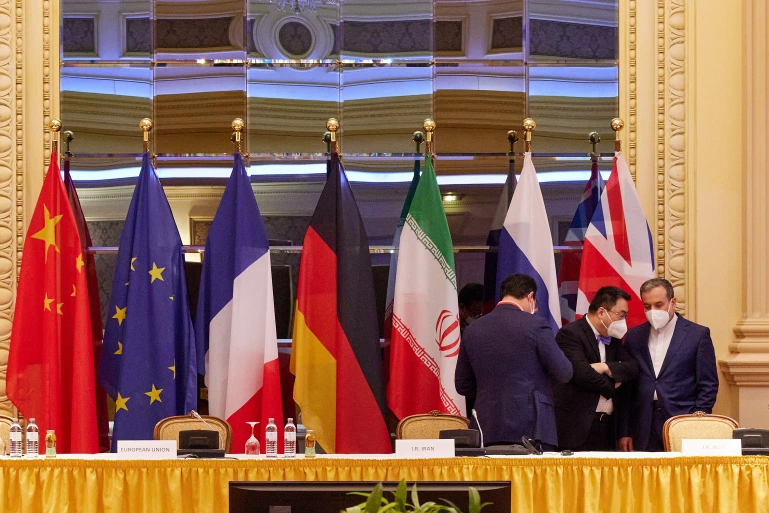
-
Published: 06 December 2021

Iranian Foreign Ministry spokesman Saeed Khatib Zadeh said: "Our texts are completely negotiable," adding at the same time: "We have seen some inaction and non-fulfilment of commitments by other parties."
Tehran is ready to negotiate the proposals it made at the Vienna talks on its nuclear agreement with the major Powers, from which Washington withdrew in 2018.
Accusing the other parties of "wanting to play a game in which each side puts responsibility over the other," he added: "We are waiting to receive the other side's opinion on the two documents that we have submitted."
Indirect negotiations between Washington and Tehran, which began in April, were resumed on 29 November in Vienna, before being discontinued in June, following the election of Iranian President Ibrahim Major.
Mediation between the two sides is provided by the European Union, which coordinates the implementation of the text, and other States participating in the Agreement, namely, France, Germany, China, Russia and the United Kingdom.
However, negotiations stopped again Friday, and delegations returned to their capitals to examine the Iranian proposals. Western diplomats said that it was "not clear how it would be possible to bridge this gap in a realistic time frame, on the basis of the Iranian project."
The Europeans, Friday, expressed their "disappointment and concern" over Iranian demands, and senior diplomats from France, Germany and the United Kingdom said that "Tehran is backing away from all hard - won settlements" during the first round of negotiations between April and June, denouncing the "step back."
The United States also criticized the Iranian authorities, Friday, for not making "constructive proposals" in Vienna.
A senior American official returning from the negotiations said that "Iran has not demonstrated the position of a country seriously considering a speedy return" to the 2015 agreement.
He continued: "In Vienna, Tehran made proposals to reverse all the adjustments it proposed" from April to June, with a view to "taking advantage of all the settlements put forward by others, especially the United States, and demanding more."
He warned that "we cannot accept a situation in which Iran is accelerating its nuclear programme, while stalling its nuclear diplomacy."
Zadeh's fiance responded to those accusations: "We negotiate, on the basis of the drafts we have submitted to the other party, the abolition of sanctions and compensatory measures."
He added: "We expect other parties to submit their views on the two documents, and new documents and drafts can be exchanged when necessary," noting that negotiations could resume "at the end of the week."
The Vienna Agreement between the six major Powers (China, the United States, Russia, France, Britain and Germany) and Iran provides for the lifting of international sanctions against the latter, in exchange for a significant reduction in their nuclear programme and the provision of assurances that they are not seeking to develop a nuclear weapon.
However, the nuclear deal has been under threat of collapse since former US President Donald Trump announced his unilateral withdrawal in 2018 and re-imposed severe sanctions.
Almost a year after the American withdrawal, Iran has gradually fallen back on most of its core commitments under the Agreement.
